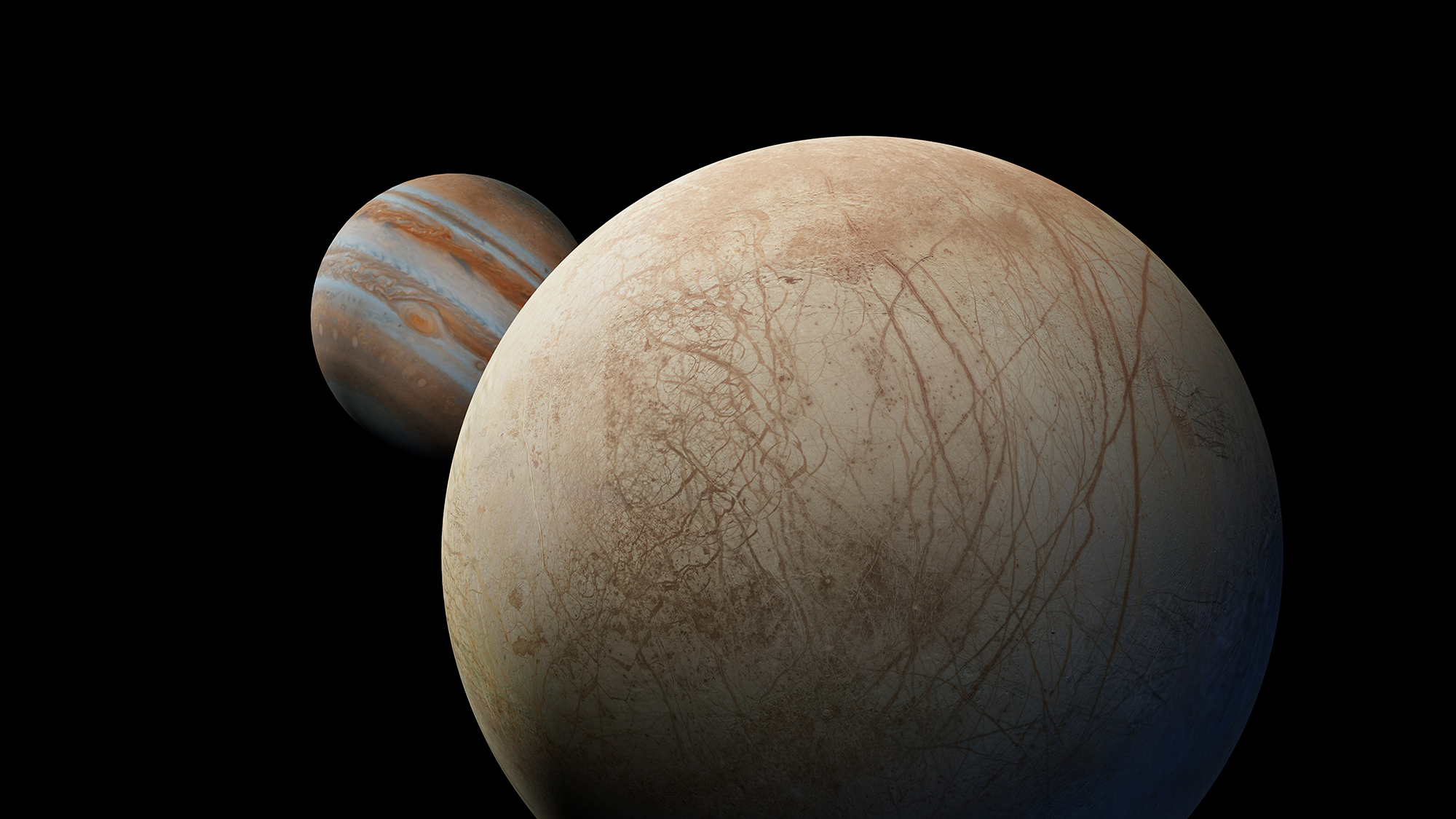
Jupiter's europa has less oxygen than hoped
- Select a language for the TTS:
- UK English Female
- UK English Male
- US English Female
- US English Male
- Australian Female
- Australian Male
- Language selected: (auto detect) - EN
Play all audios:
WHAT HAPPENED? Jupiter's moon Europa, believed to have a salty ocean under its icy shell, has less oxygen on its surface than previously believed. This makes it less likely the planet
harbors life, scientists said Monday in Nature Astronomy. WHO SAID WHAT? Europa's oxygen is "on the lower end of what we would expect," lead study author Jamey Szalay said to
The New York Times. But "it's not totally prohibitive" for hosting life. One theory is Europa's oxygen — formed when particles from space split frozen water molecules on
the icy crust into hydrogen and oxygen — sinks down into the subterranean ocean, mixing with volcanic material to create a "chemical soup that may end up making life," University
of Colorado planetary scientist Fran Bagenal told the Times. "We don't really know how much oxygen you need to make life," she added. "So the fact that it's lower
than some earlier, wishful-thinking estimates is not such a problem." SUBSCRIBE TO THE WEEK Escape your echo chamber. Get the facts behind the news, plus analysis from multiple
perspectives. SUBSCRIBE & SAVE SIGN UP FOR THE WEEK'S FREE NEWSLETTERS From our morning news briefing to a weekly Good News Newsletter, get the best of The Week delivered directly
to your inbox. From our morning news briefing to a weekly Good News Newsletter, get the best of The Week delivered directly to your inbox. WHAT NEXT? NASA is scheduled to launch its Europa
Clipper orbiter in October to gather more data from Jupiter's moon, and the European Space Agency's Jupiter Icy Moons Explorer is expected to arrive in Europa's neighborhood
in 2031.